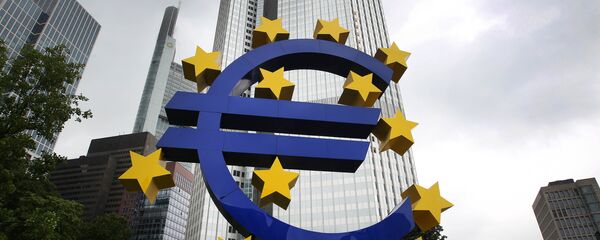Kristian Rouz – After Greece reported an economic contraction in the fourth quarter, the nation’s creditors became increasingly anxious over Athens’ capability of serving its obligations. The Greek IMF bailout program has faltered recently as the government refused to implement additional austerity measures and broaden the scope of economic reform that would allow the budget to be consolidated.
Pierre Moscovici, the EU Commissioner for Economic Affairs, is meeting with Greek Prime Minister Alexis Tsipras in Athens on Wednesday. The Commissioner has already had a meeting with Greek Finance Minister the same day. These meetings are an attempt by the European authorities to spur the pace of economic reform in Greece and convince Athens that more austerity measures are necessary if the nation wants to both meet its creditors’ demands and remain in the Eurozone.
“The will to go to a solution is there, and where there is a will there is a way,” Moscovici commented after his conversation with Greek Finance Minister Euclid Tsakalotos. “I hope that we can find the best solution as well for Greece and its partners inside the Eurozone because my feeling is, and always was, that we need a strong Greece at the heart of the Eurozone.”
Yet, additional fiscal consolidation might be necessary in the light of the sudden Q4 contraction.
“The negotiations should have ended. Greece has done everything that it was asked to do,” Nikos Pappas, Greece’s digital policy minister, said. There will be “no more measures,” he added.
The International Monetary Fund (IMF) insists that in the light of the recent developments, Greece needs to implement additional budget cuts worth some 2pc its GDP in order to be able to achieve and maintain at least 1.5-percent budget surplus after the EU bailout is removed.
Now, the IMF say they would not enable the 86-billiout-euro Greek bailout unless the nation cuts its budget expenditures further. Meanwhile, Greece has a 7-billion-euro payment to the European Central Bank (ECB) due in July, and as the deadline nears, the standoff around the Greek debt is escalating again.
Greece might leave the Eurozone after all, Ted Malloch, Donald Trump’s pick for the US ambassador to the EU, said, commenting on the renewed crisis.
“I know some Greek economists who have even gone to leading think tanks in the US to discuss this topic (Grexit) and the question of dollarization,' Malloch said in an interview to Greek TV. “Such a topic of course freaks out the Germans because they really don't want to hear such ideas.”
Wolfgang Schauble, the German Finance Minister, meanwhile, said that the EU will not pour any more money into the Greek budget in order to help Greece stay in the Eurozone, and maintain the current level of budget spending, and meet its creditors’ demands.
“For that, Greece would have to exit the currency area,’ Schauble said. “Pressure on Greece to undertake reforms must be maintained so that it becomes competitive, otherwise they can’t remain.”
While the EU-Greek negotiations are underway, anxiety in the European markets, rocked by the recent Brexit and Italian banking sector panic, is brewing gradually, rendering the entire Eurozone highly volatile.





